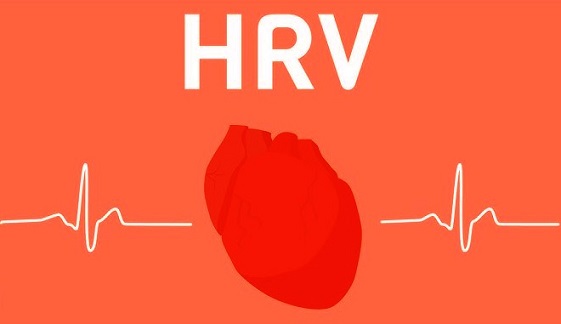COVID-19 Alters HRV, Disrupts Autonomic Regulation, Increases Sympathetic and Reduces Parasympathetic Activity
Nikhil Prasad Fact checked by:Thailand Medical News Team Dec 28, 2024 1 year, 1 month, 1 week, 1 hour, 26 minutes ago
Medical News: A groundbreaking study has shed light on how COVID-19 disrupts the human body’s autonomic regulation, significantly altering heart rate variability (HRV) and increasing sympathetic activity while reducing parasympathetic activity. This discovery highlights yet another way the SARS-CoV-2 virus impacts health, adding to the growing body of evidence about its effects on the cardiovascular system.
 COVID-19 Alters HRV, Disrupts Autonomic Regulation, Increases Sympathetic and Reduces
COVID-19 Alters HRV, Disrupts Autonomic Regulation, Increases Sympathetic and Reduces
Parasympathetic Activity
Key Findings of the Study
Researchers from the Krannert Cardiovascular Research Center, Indiana University School of Medicine-USA, the Division of Gastroenterology-Hepatology at the same institution, and Purdue University's Weldon School of Biomedical Engineering-USA collaborated on a comprehensive analysis of HRV in COVID-19 patients. This study involved 132 participants, segmented into three groups: 50 COVID-19 patients, 51 individuals with cardiovascular diseases (CVD), and 31 healthy volunteers. The diverse participant pool allowed for comparisons across health conditions, age groups, BMI categories, genders, and racial demographics.
HRV, a critical non-invasive marker of the balance between sympathetic and parasympathetic nervous system activities, served as the primary focus of this investigation. This
Medical News report highlights how HRV, through parameters such as SDNN (standard deviation of normal-to-normal intervals), RMSSD (root mean square of successive differences), and frequency-domain measures, reveals significant autonomic imbalances caused by COVID-19.
Autonomic Dysfunction: A Closer Look
COVID-19 patients exhibited dramatically reduced HRV metrics compared to healthy individuals, mirroring patterns observed in those with CVD. Time-domain HRV measures such as SDNN and RMSSD were significantly lower in COVID-19 patients (SDNN: 0.02±0.02 s vs. 0.06±0.03 s in healthy volunteers; RMSSD: 0.02±0.02 s vs. 0.05±0.03 s, p < 0.001). These findings signal impaired parasympathetic activity - hallmark of autonomic dysfunction.
In frequency-domain analysis, COVID-19 patients showed higher low-frequency (LF) power and reduced high-frequency (HF) power, pointing to an imbalance favoring sympathetic over parasympathetic activity. The LF/HF ratio, a marker of sympatho-vagal balance, remained similar between COVID-19 patients and healthy individuals, possibly due to the dynamic interplay between the two components. However, nonlinear HRV measures such as SD1 and SampEn indicated significant reductions in complexity and short-term variability among COVID-19 patients.
The Impact of Demographics
The study delved into how factors such as age, BMI, gender, and race influenced autonomic dysregulation. Younger patients, females, and non-white individuals displayed more pronounced autonomic dysfunction. For instance, non-white COVID-19 patients exhibited lower HF power and SDNN values compared to the
ir white counterparts, reflecting more severe parasympathetic suppression. Similarly, younger participants (aged ≤ 65) demonstrated greater reductions in HRV compared to older individuals.
Interestingly, BMI appeared to correlate with autonomic dysfunction. COVID-19 patients with BMI ≥30 (indicative of obesity) showed lower RMSSD and HF power compared to those with BMI <30, underscoring the additional burden obesity places on autonomic regulation during SARS-CoV-2 infection.
HRV as a Predictive Tool
This study adds to growing evidence that HRV can serve as a predictive marker for COVID-19 outcomes. Reduced HRV is linked with worse prognoses, including increased mortality and greater risk of ICU admission. For example, the study found that COVID-19 patients with extremely low pNN50 values (<1%) faced higher complications, aligning with earlier research highlighting HRV’s sensitivity as an early warning indicator.
Implications for Clinical Practice
The findings of this study emphasize the importance of incorporating HRV analysis into the clinical management of COVID-19 patients. Monitoring HRV may help identify those at risk for severe autonomic dysfunction, enabling timely interventions. Moreover, the study’s demographic insights suggest that specific subgroups - such as younger, non-white, and obese patients - might benefit from tailored treatment strategies to mitigate autonomic dysregulation.
Conclusions
In conclusion, this research underscores COVID-19’s profound impact on autonomic function. By altering HRV, the virus creates a state of heightened sympathetic activity and diminished parasympathetic tone, which resembles patterns seen in severe cardiovascular conditions. This autonomic imbalance not only explains many cardiovascular complications associated with COVID-19 but also provides a potential pathway for developing targeted therapeutic approaches.
Future studies should aim to explore long-term autonomic recovery in COVID-19 survivors, as well as investigate potential interventions to restore autonomic balance. Additionally, expanding the research to include diverse populations will provide a more comprehensive understanding of how demographic factors influence these findings.
The study findings were published in the peer-reviewed journal: Scientific Reports.
https://link.springer.com/article/10.1038/s41598-024-80918-w
For the latest COVID-19 News, keep on logging to Thailand
Medical News.
Read Also:
https://www.thailandmedical.news/news/breaking-covid-19-new:-european-meta-study-validates-that-sars-cov-2-infections-can-cause-cardiovascular-autonomic-dysfunction-in-many
https://www.thailandmedical.news/news/post-covid-fever-and-autonomic-dysfunction
https://www.thailandmedical.news/news/covid-19-news-study-finds-that-most-post-covid-individuals-who-only-had-mild-infections-suffer-from-asymptomatic-autonomic-dysregulation
https://www.thailandmedical.news/news/long-covid-news-postural-orthostatic-tachycardia-syndrome-pots-and-dysautonomia-are-common-occurrences-in-long-covid
